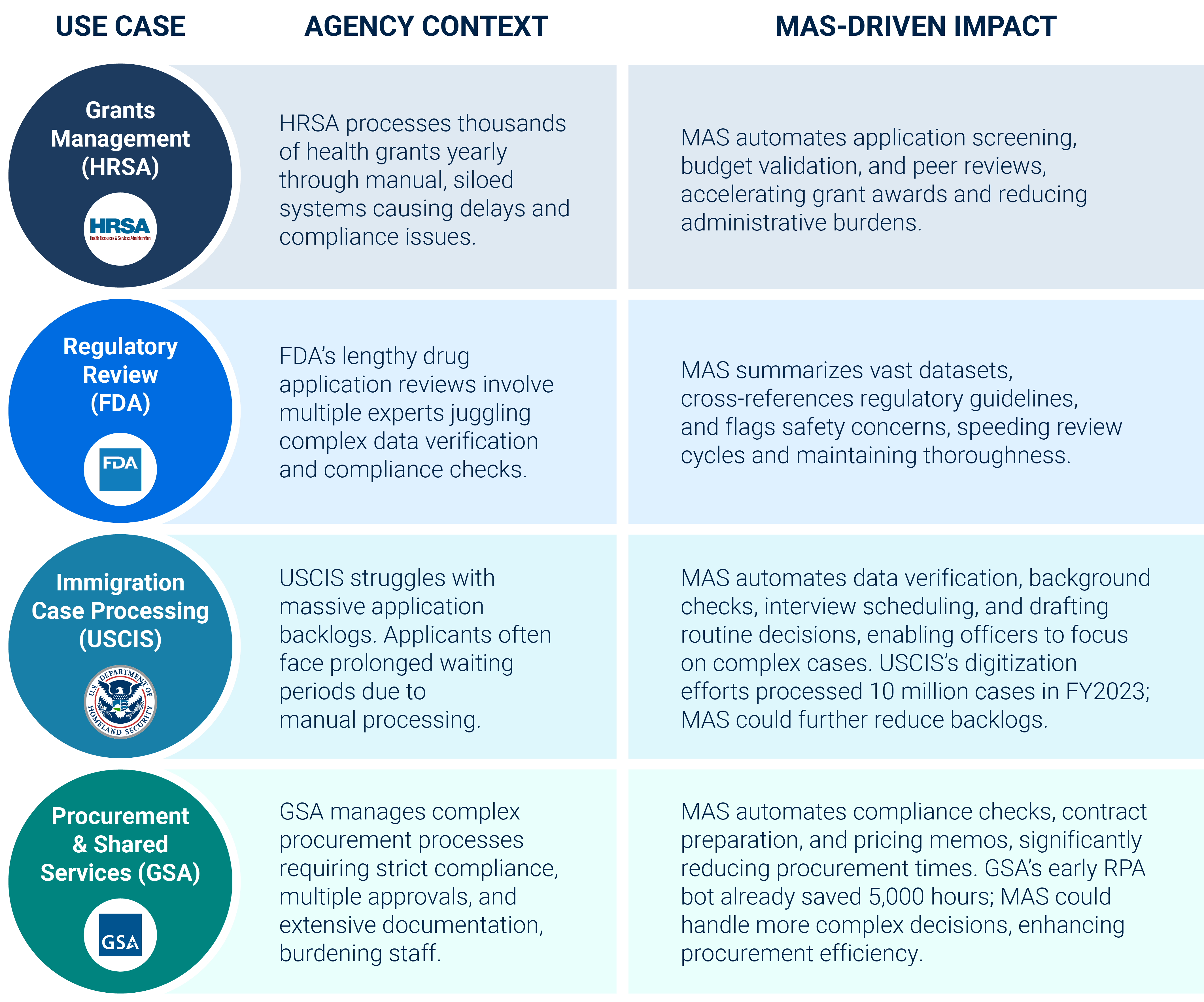By Anand Trivedi, REI Systems’ AI Offering Lead
The Need for Government Workflow Automation
Federal agencies face endemic workflow challenges impeding mission delivery. Many processes remain manual, paper-based, and siloed, causing significant backlogs and delays. The immigration court system, reliant on paper forms, faces a backlog exceeding three million cases. The IRS struggles similarly; taxpayers spend an average of 13 hours on individual returns, waiting months for refunds. Government inefficiencies, measured in cost and human hours, highlight a critical need for streamlined processes.
A McKinsey study suggests improving U.S. government productivity could save approximately $750 billion annually. Automation can significantly enhance performance, potentially cutting operating costs by 30%, with around 80% of finance, HR, and case-handling processes at least partially automatable. While Robotic Process Automation (RPA) has helped automate specific tasks (e.g., GSA’s bots), complex workflows requiring human-like decision-making and cross-team coordination are better addressed by multi-agent systems (MAS).
What are Multi-agent Systems and Why 2025 is a Tipping Point
Multi-agent systems (MAS) involve teams of autonomous AI agents collaboratively performing complex tasks. Each agent specializes in specific roles, coordinating their actions like a skilled human team but digitally. For instance, processing a benefits application could involve agents separately validating data, checking policies, and drafting decision memos. AI research confirms multiple cooperating agents outperform single monolithic AI systems.
By 2025, frameworks like LangChain’s LangGraph, Microsoft’s AutoGen, and CrewAI have significantly matured. Additionally, the introduction of the Model Context Protocol has standardized agent interactions, dramatically enhancing interoperability. These frameworks now provide reusable agent ecosystems capable of memory, API/database integrations, and human oversight, enabling credible solutions for automating complex federal workflows by effectively emulating human team structures.
These scenarios demonstrate MAS’s potential to automate repetitive tasks, streamline information routing, and enforce compliance, significantly boosting throughput and consistency. Agents escalate exceptions to humans, ensuring accountability and transparency.
Impacts, Risks, and Prerequisites
Thoughtfully implemented MAS offer substantial benefits:
- Cost Efficiency: Intelligent automation reduces operating costs by up to 35%, reallocating resources to critical missions.
- Speed and Throughput: MAS reduces processing times by 50–60%, significantly shrinking backlogs and accelerating public service delivery.
- Accuracy and Compliance: Consistent application of business rules reduces human error, ensuring better regulatory compliance.
- Employee Productivity and Satisfaction: Automation frees staff for higher-value tasks, boosting productivity and morale.
However, risks and key considerations include:
- Data Quality: MAS effectiveness relies on standardized, accurate data to avoid flawed outputs.
- Security and Access Controls: Robust cybersecurity measures must govern sensitive data interactions by AI agents.
- Human Oversight: Regular human supervision is crucial, especially initially, to mitigate AI risks and enhance trust.
- Operational Costs: MAS can be computationally intensive; careful infrastructure planning and optimization are necessary to ensure cost-effectiveness.
Successful MAS adoption also requires:
- Digital, Well-Structured Data: Modernized, standardized data infrastructure.
- Robust Governance & Policies: Clear AI guidelines defining automation scope, oversight, exception handling, and outcome monitoring.
- Skilled Workforce & Training: Staff training for effective collaboration with AI systems and handling complex cases escalated by MAS.
- Secure, Scalable Infrastructure: Robust IT infrastructure, including cloud platforms, APIs, testing environments, and cybersecurity compliance.
How REI Systems Can Help Agencies Harness MAS
REI Systems combines deep federal process expertise with advanced AI capabilities to guide successful MAS adoption. With extensive experience modernizing federal IT systems across healthcare, finance, justice, and more, REI understands the workflows and pain points MAS can address. Our “Mindful AI” approach ensures AI solutions remain transparent, trusted, and compliant with federal governance.
REI supports agencies through identifying valuable MAS use cases, implementing pilot programs, integrating AI into existing workflows, and setting robust governance and training frameworks. Our measured approach ensures quick wins, building stakeholder confidence as solutions scale.
In summary, MAS represents a significant opportunity for smarter, faster, and more efficient government service delivery. REI Systems stands ready to help agencies responsibly implement MAS, leveraging collaborative AI intelligence to enhance public service significantly.





